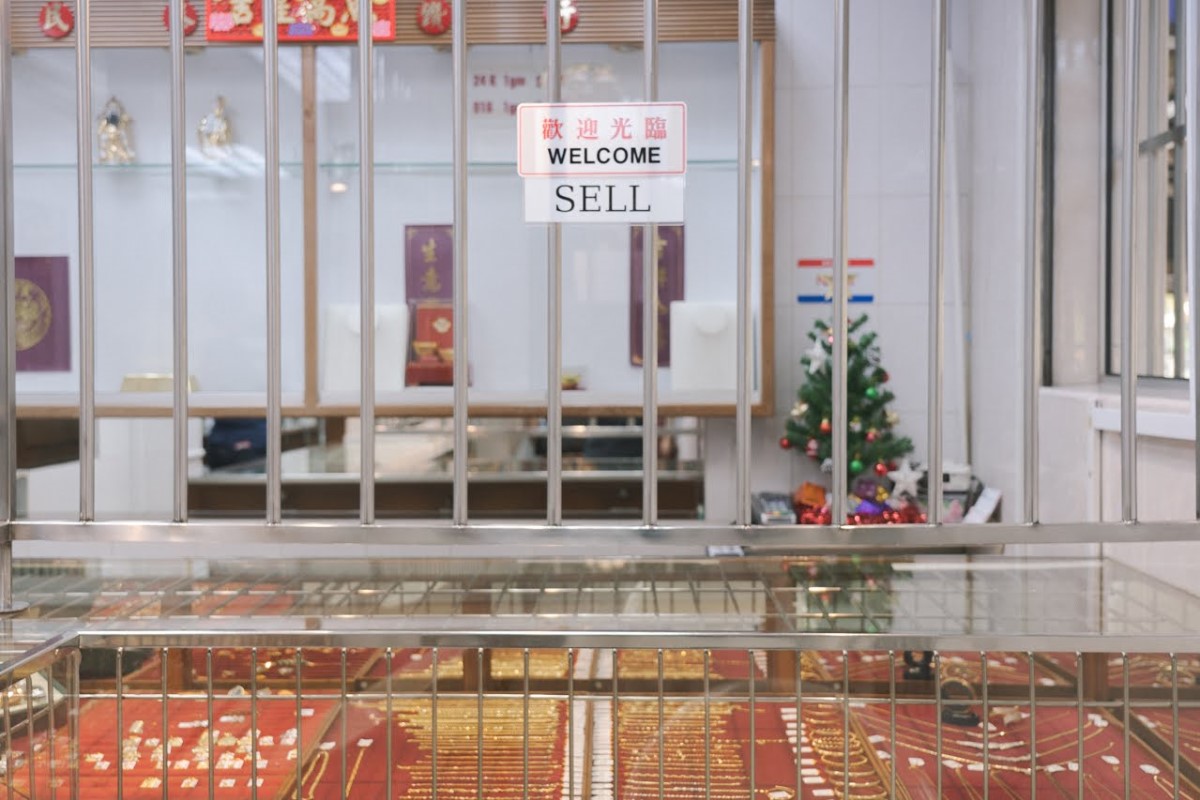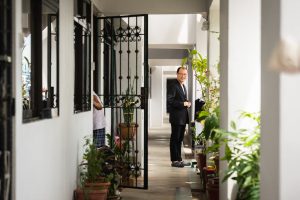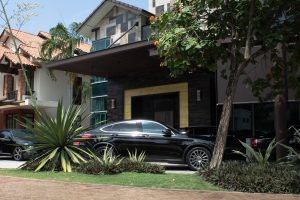“In politics, you tax the people you think can’t fight back.” These were the words of American politician Stacey Abrams in her interview with The Atlantic magazine.
For most of history, the ultra-wealthy elites around the world have managed to have their cake and eat it too. For little to no effort, the world’s wealthiest—celebrities, tech billionaires, hedge fund managers—have been known to avoid paying taxes through an endeavour of routing their wealth through a complex web of corporate entities and holdings, many of which involve ‘tax haven’ countries with low or no taxes such as Singapore.
Singapore, by design, offers an attractive environment for the world’s wealthiest to park their money for extremely attractive taxes. Consider this: the maximum capital gains tax in the United States today stands at 20%. In Singapore, that rate is 0%.
The measure has paid off handsomely. Unbeknownst to most outside the secretive realm of private wealth, a staggering USD 54 billion is currently stashed here in Singapore under family office entities.
These are the wealth of the ultra-high net worth families being tucked away from the public glare right here in Singapore.
When disclosing these numbers in parliament, Minister Chan Chun Sing was coy about offering more information, acknowledging only that Singapore benefits from these ultra-high net worth individuals through the investment services and indirect employment of “external finance, tax and legal professionals”.
Beyond these specialised professionals that service the ultra-wealthy, it is difficult to wrap one’s head around how the rest of society benefits.
Meanwhile, the mood towards the ultra-wealthy worldwide has soured significantly over the past couple of years as the divide between the haves and the have nots have widened to worrying levels.
The world caught a glimpse of that bewildering inequality right before our eyes when the pandemic struck. As millions of livelihoods were shattered, some irreversibly, the fortunes of the global billionaires headed in the opposite direction.
In fact, during the pandemic, the combined wealth increase of the world’s ten wealthiest individuals was found to be more than sufficient to purchase vaccines for the rest of the world and yet not leave any of them poorer than before. Specifically, the total number of billionaires exploded 30% during the pandemic.
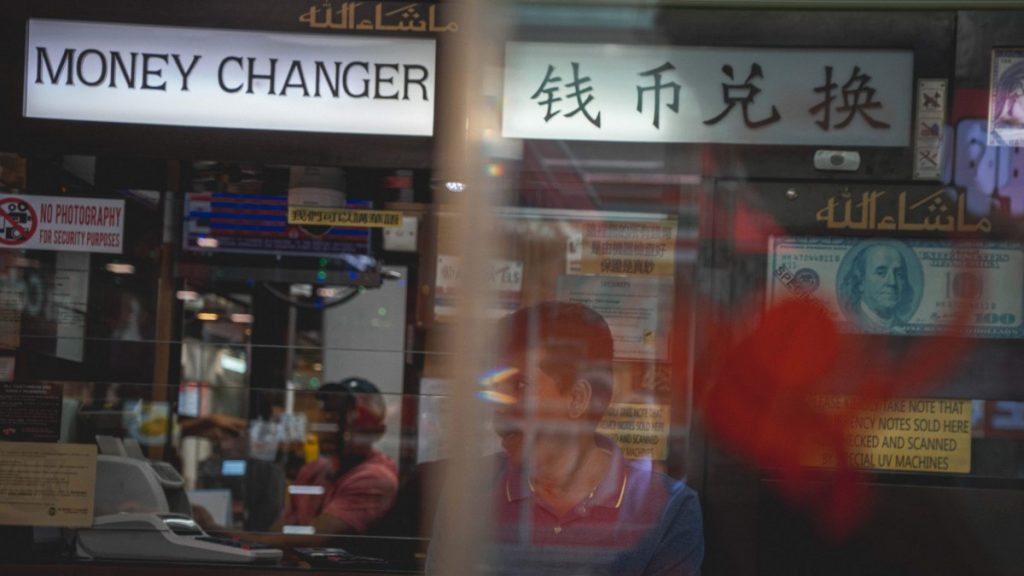
Wealth in Singapore
On the other hand, the concept of wealth inequality isn’t something that many are familiar with in Singapore. Income inequality has sat in the limelight for a long time as Members of Parliament joust over the pros and cons of the Progressive Wage Model and whether we should even consider a form of minimum wage alternative.
But that is where the problem lies. Because so much attention has been devoted to discussing only the low-income situation in Singapore, we end up missing the forest for the trees.
In Singapore, most of the conversations that aim to alleviate income inequality or any attempt to uplift our low wage workers, for that matter to ensure the dignity of the poorest of the poor in Singapore, often end up in an emotionally charged, shouting-match-esque tirade of “us versus them” and “who pays?” rhetoric.
This mentality is problematic, although understandable.
After all, espousing self-reliance has always been the hallmark of Singapore’s economic success and, in many ways, the mantra for individuals and their quest for personal financial success as well.
But with such a strong narrative pervading all aspects of the national mindset, Singapore’s poor and economically handicapped are often conveniently labelled as “lazy”. The solution often peddled most simplistically is to get out and do some “skills upgrading”.
The statistics speak for itself
Credit Suisse recently published a report that the number of millionaires in Singapore is predicted to increase by 62% by 2025. Beyond the headlines, the report also painted a stark picture for inequality in Singapore—that the top 1% controlled 34% of all wealth in the country.
That is an immense amount of wealth concentrated in the hands of a few. Compare that figure with 18% in Japan, 24% in Korea, 28% in Taiwan, and even 30% in capitalist United States and the problem becomes more evident.
In other news, while the Singapore government rolled out multiple rounds of economic aid over the past year to keep people in their jobs and the economy on life support, the housing market saw non-stop growth utterly unheard of in such dire times, with 19 HDB flats being sold for over a million dollars in June 2021 alone. All this as the ultra-high net worth club in Singapore grew 10% during the pandemic.
Meanwhile, 1.7% of the Singapore workforce earn below S$1,300 every month and struggle to make ends meet.
The difference between the haves and the have nots in Singapore have never been wider.
What is at stake?
In the critically acclaimed book Capital in the Twenty-First Century by French economist Thomas Piketty, Piketty had illustrated, for the first time in modern history, that inequality in society is not an accident but rather a making, or a by-product of any capitalist economy that should be expected and can only be addressed by government intervention.
If left unchecked, that inequality could become a potent ingredient for social unrest when the gap between the rich and the poor gets too large.
Although it is tempting to casually dismiss such views or paint them as nothing but mere hyperbole, we’re, in fact, already witnessing a creepy manifestation of our society’s threads fraying just as Piketty had warned—and right here in Singapore.
Ravi Menon, chief of the Monetary Authority of Singapore, had himself warned in no uncertain terms about the dangers of rampant wealth inequality and how they could wreak havoc on the very fundamental principle of our society—meritocracy—and why it is vital for us to pay closer attention to this fracture of our system.
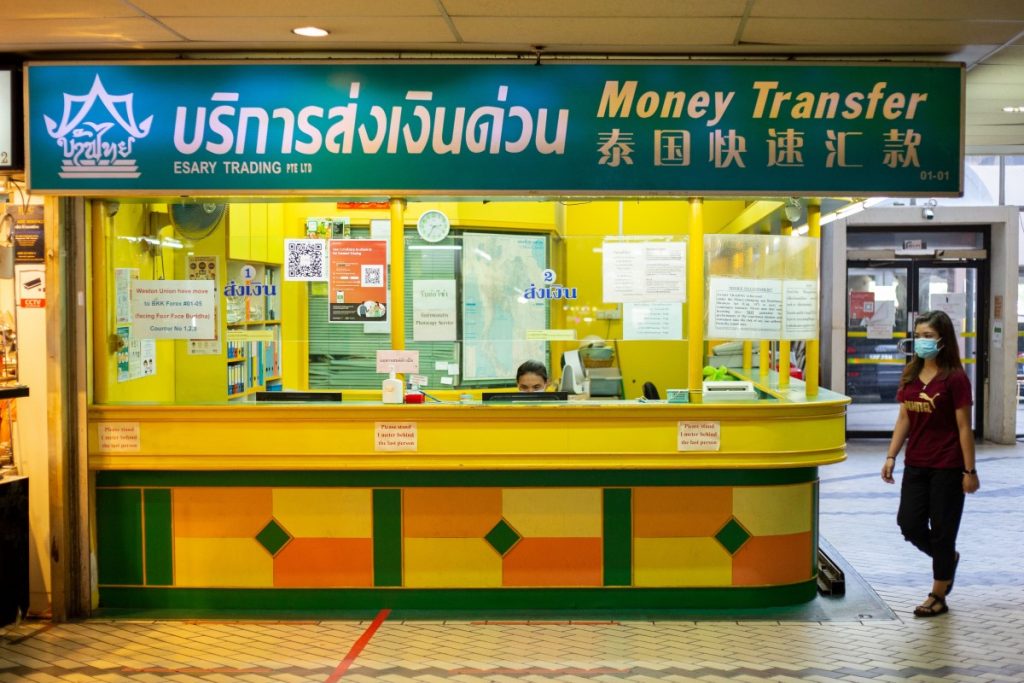
Wealth and the irony of meritocracy
Singapore was founded on the back of meritocracy, where the founding fathers had envisioned for the country’s success to be dependent on talent and hard work, regardless of race, language, or religion.
But when success in Singapore today depends more on one’s wealth attained either through inheritance or off the property market rather than on hard work or talent, it is of no surprise that cracks would then begin to appear in the meritocratic cornerstone of Singapore’s foundations.
Many people in Singapore rely on income from their jobs as the sole source of financial security. Many are just a paycheck away from economic ruin. Few are able to fall back on their investment dividends or sale of shares to finance their lifestyle.
Because of that, the pandemic’s impact on Singaporeans has left many anxious about what their career will look like in the future, even for those who are fortunate enough to keep their jobs.
And so when the ultra-wealthy utilise accounting and tax loopholes that are not available or possible for the general population, they erode the principle of meritocracy and perpetuate an ever-increasing cycle of intergenerational wealth transfers that exacerbate a form of modern aristocracy.
By the nature of the present system and its loopholes, it is far easier for people to make money from money and keep it than to make a living from work. The very nature of humans wanting to provide better for their offspring also makes for little incentive for the ultra-wealthy to want to part with their wealth.
When people begin to feel as if there are two sets of rules—one for the wealthy and one for the rest—and that the Singapore dream, however, it be defined, is hardly attainable anymore, society may end up going into decline and ‘an us versus them’ mentality would slowly begin to take root and pervade the subconscious of the different demographics.
Worse, people begin to look for scapegoats.
The implications of excessive wealth inequality would eventually reverberate across our society and political mindset that would see Singapore go down a path of greater polarisation.
A moral imperative?
“I need to pay higher taxes,” Bill Gates complained to CNN in 2018. “The government should require people in my position to pay significantly higher taxes.” Consider that Bill Gates has, in fact, paid over US$10 billion in taxes and still feels undertaxed. Similarly, when President Trump signed off on new tax cuts to the rich in 2017, a group of ultra-rich in America fumed that their tax bill was way too low.
We must ask ourselves what the role of governments should be when unparalleled levels of wealth inequality burden society.
In economic theory, markets fail when there is an inefficient distribution of goods and services in the free market. When a segment of society is allowed to prosper off the backs of low wage salaried workers, the moral imperative of governments to step in becomes even more pronounced.
Across the world, the ultra-wealthy have often lobbied against all forms of wealth taxes, blaming wealth taxes to be a form of class warfare. But as the gap between them and the working class continues to widen, it is of no surprise that the idea of a wealth tax is increasingly gaining traction worldwide.
Neither is it unreasonable to expect the wealthy to shoulder a larger responsibility towards their own communities, especially during economic emergencies.
In all the attempts to keep Singapore competitive as the Asian hub for finance and wealth management, any whisper by the government of a potential wealth tax is understandably sensitive.
However, calls to overhaul our tax regime in Singapore aren’t exactly new. To make it fairer that the ultra-wealthy contribute more, Ms Foo Mee Har, MP of West Coast GRC, had for two consecutive years insisted the government consider it.
Despite that, the government has largely sidestepped the issue with DPM Heng Swee Keat dryly responding that they could be reviewed.
In her speech in parliament, Ms Foo was more specific in her proposal in calling for estate taxes to be reintroduced and a modest wealth tax to be implemented. It is worth noting that Ms Foo is also the CEO of the Wealth Management Institute, an outfit jointly set up by Temasek and GIC to grow the expertise of wealth managers in Singapore.
By any measure, implementing a wealth tax, similar to any tax in Singapore, will not be without its drawbacks, something which Ms Foo is certainly most aware of.
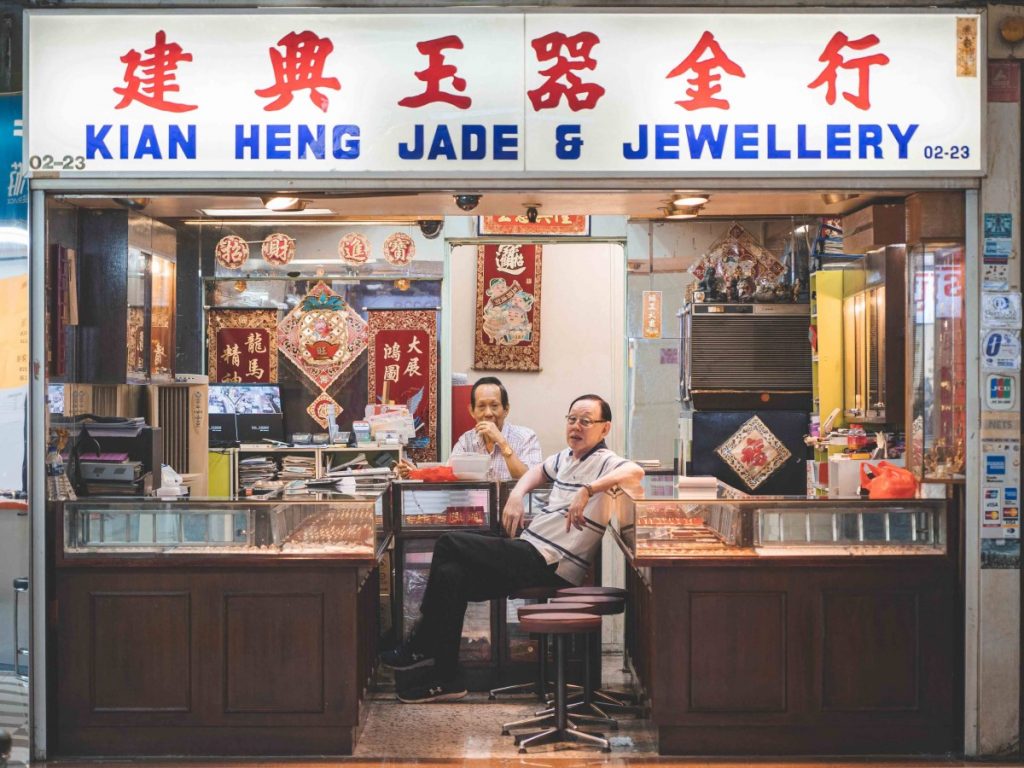
Understanding the mechanics of a wealth tax
Proponents of a wealth tax believe that such a tax would be far more equitable than an income tax alone, especially in countries with a high level of wealth inequality, such as Singapore.
In such societies, the low and middle income derive most of their earnings from salaried work. At the same time, the ultra-wealthy rely primarily on other means for income—profits derived from the financial proceeds of the sale of stocks, property, and dividends.
While that doesn’t immediately raise any eyebrows, learning about the respective tax treatments will.
A wealth tax is different from an income tax as it prescribes a tax based on the combined assets of the taxpayer, including cash, real estate, shares, luxury items such as art collections and boats, and anything that has a monetary value.
As one might imagine, a key challenge in implementing such a wealth tax would be how to best assess an asset’s fair market value. This is especially so as the value of assets tend to increase or decrease over time.
An independent agency distinct from the government or any political party can provide fair estimates of annual market values of assets similar to the role of Switzerland’s farmers’ associations in ascribing the value of farmers’ livestock.
Understanding the difference in the applicable tax rate for both sources of income presents a troubling reality and makes evident a tax loophole that urgently needs to be addressed.
In Singapore, the maximum tax rate for earned income from work is 22%, whereas it is 0% for income obtained from capital gains of stocks, dividends, or inheritance. If we do not know the reason for the immense wealth inequality in Singapore before, now we do.
As such, a tax system that considers both earned income and total combined wealth create a much more level playing field. It should not be controversial to ask a multi-millionaire to pay a fairer tax rate vis-à-vis his salaried counterpart.
It is not just the Robin Hood type of personality that advocate for a wealth tax. Nobel prize winner in economics Joseph Stiglitz and French economist Thomas Piketty are strong proponents as well.
Many countries have experimented with some form of wealth taxes, but the most successful implementation happens in Switzerland, to the envy of many others.
The nuts-and-bolts of a Singaporean wealth tax
Success in implementing a wealth tax also boils down to a couple of policy aspects, and its eventual implementation shapes up to be more of an art than a science. Not only is prescribing a fair tax rate essential to ensure that the ultra-wealthy pay it instead of carting their wealth to another jurisdiction, but it is also essential that a wealth tax not be punitively high.
For most countries, including Switzerland, the wealth tax is modest, hovering between 0.3% to 1% of the taxpayer’s net worth depending on which canton the individual resides, but constitutes 3.8% of the country’s overall total revenue. Similarly, another success story in Norway prescribes a 0.85% maximum wealth tax.
As with the spirit of a wealth tax being fair, only net wealth is taxed, which means that taxes are only payable on assets net of any debt or outstanding mortgage. And similar to income tax, a reasonable and fair threshold needs to be established, of which taxes will be due beyond that amount.
For instance, Switzerland’s tax-free threshold for a married couple without children goes up to 250,000 Swiss Francs (S$370,000), while the tax-free amount for Norwegian individuals is 1.48 million kronor (S$230,000). For married couples, the tax-free amount would be doubled.
There is no one-size-fits-all, and each country will have to decide for itself what would constitute a fair and reasonable threshold. In the United States, Senator Elizabeth Warren’s proposal calls for an ultra-millionaire tax of 2% for households and trusts over US$50 million and an additional 1% for assets beyond US$1 billion.
Senator Warren’s ultra-millionaire’s tax proposal also goes to show that the threats and fear-mongering among the elites and ultra-wealthy of an impending “class warfare” is nothing more than the perverse desire of the ultra-wealthy to avoid paying taxes at all cost. Warren Buffet himself had said that modest wealth taxes would hardly provoke the wealthy to leave the country.
Should Singapore ultimately implement a modest wealth tax similar to Senator Elizabeth Warren’s ultra-millionaire’s tax proposal, the vast majority would have nothing to worry about at all.
Considering that just 1,361 people in Singapore have wealth exceeding US$50 million, and at a tax rate of just 2%, a whopping US$1.36 billion can be collected that can be funnelled to support social programs directly.
This chasm of inequality is not only detrimental to a harmonious society; it is also not able to right itself of its ills.
Wealth taxes for the common good
Also, as with many targeted taxes to address the various social ills such as the tobacco and alcohol excise, the implementation of the national wealth tax must be explicitly used to broaden social spending for a larger group of vulnerable workers rather than having the new revenue stream disappear into the general government coffers.
The idea of a wealth tax to target wealth inequality directly will also make for strong public support. One of the most straightforward ways would be to expand the Workfare Income Supplement scheme—one of the very few schemes that involve direct government financial income support, by either loosening the eligibility criteria or increasing the financial top-up quantum.
By PM Lee’s latest projections, Workfare’s cost for the government is estimated to be S$1.1 billion within the next two years, something which taxpayers for the wealth tax can directly “give back” to society.
Singapore will ultimately have to decide what a suitable threshold is before a wealth tax kicks in to avoid trapping the middle-income households that are asset rich but cash poor.
Although Switzerland and other European countries with a wealth tax offer “instalment plans” for cash-poor taxpayers—think farmers with acres of land and livestock but are not wealthy—Singapore, with a homeownership rate of over 90%, should avoid this situation by keeping with the spirit of the wealth tax, that is to flatten the extremes on both ends of the wealth spectrum instead of choosing to roll out a broad-based tax.
Alternatively, a wealth tax could take the form of a one-off measure as was implemented in Argentina last year as a means to support the government’s pandemic relief budget. A similar one-time wealth tax was also proposed to the UK parliament after the United Kingdom’s Wealth Tax Commission concluded its findings in 2020.
A fairer society for all
We should no longer be deliberating whether or not the ultra-wealthy should take on a proportionately more significant and fairer role in supporting their very communities, but rather how they can do so equitably and beneficially for all.
Similarly, the role of governments and specifically the Singapore government must also evolve, and quickly enough to understand that while this chasm of inequality is not only detrimental to a harmonious society, it is also not able to right itself of its ills.
There are no easy or correct answers to questions on how much responsibility the ultra-wealthy bears towards their communities and what exact role the 4G government must play to level out the playing field, but that should not preclude us from having a serious discourse about it. One thing is sure; doing nothing is no longer tenable.
To be clear, a wealth tax on its own will not be a panacea to wealth and social inequality in Singapore. It is but the very first policy that will set the tone on how Singapore cares for its weakest members of society as it teeters on the brink of runaway capitalism.
A national wealth tax is not only an economic imperative but, more significantly, a moral one for the country. It may be long overdue, but the fact that politicians from multiple political parties have now expressed their support is a sign that it is no longer political but is a necessary policy lever to address the widening wealth inequality in Singapore.
Just as the PAP urged opposition parties not to oppose for the sake of opposing, the PAP should also not do so. During this extraordinary time, the opportunity for bold policies has arisen, and history will remember us for what we choose to do as a nation for the poorest and weakest or if we toil away to justify our inaction.
The PAP government has consistently prided itself as a party that does not shy away from making tough and unpopular decisions. As Nelson Mandela eloquently declared, “A nation should not be judged by how it treats its highest citizens, but its lowest ones.” History shall judge whether the Covid-19 pandemic brought Singapore closer or divided us even more and whether we chose profits over people.
